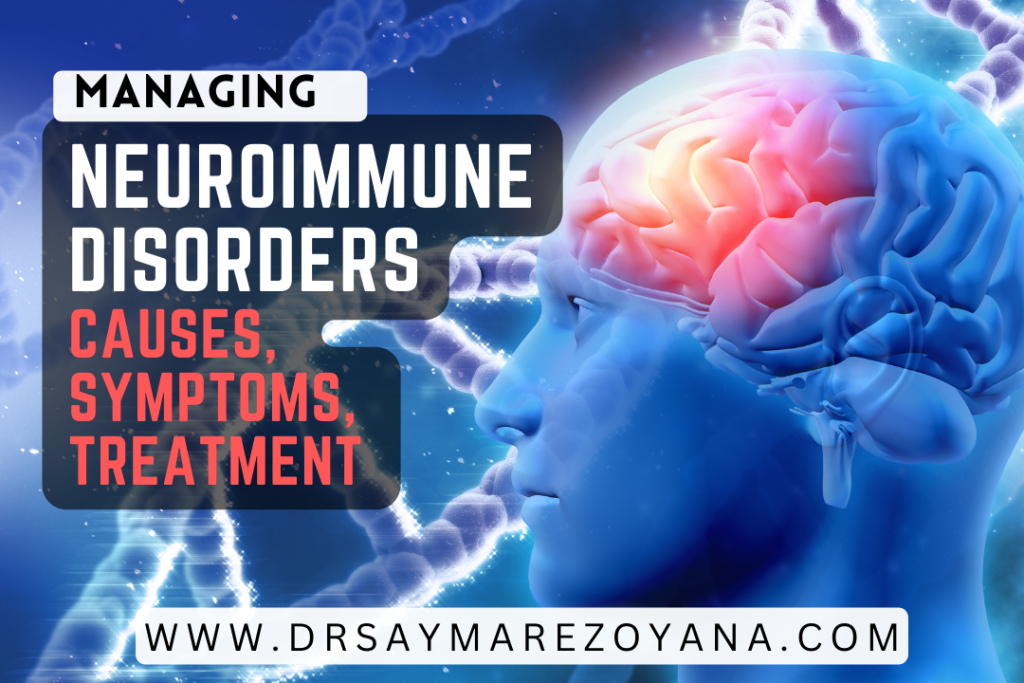Neuroimmune disorders encompass a range of conditions that involve the complex interplay between the immune system and the nervous system. These disorders can have a significant impact on an individual’s quality of life, requiring comprehensive management strategies. In this article, we will delve into the causes, symptoms, and treatment options for neuroimmune disorders, providing valuable insights into effectively managing these conditions.
I. Understanding Neuroimmune Disorders
Neuroimmune disorders are characterized by dysfunction in the immune system and the nervous system, leading to various neurological symptoms. The exact causes of these disorders are multifactorial and can include genetic predisposition, environmental factors, and dysregulation of the immune response. Certain neuroimmune disorders, such as multiple sclerosis and Guillain-Barré syndrome, have well-established diagnostic criteria, while others may present with more complex and overlapping symptoms.

II. Common Symptoms of Neuroimmune Disorders
Neuroimmune disorders can manifest with a wide array of symptoms, which can vary depending on the specific condition and its progression. Some common symptoms include:
- Cognitive impairment
- Fatigue
- Muscle weakness
- Sensory disturbances
- Balance and coordination problems
- Pain
- Autonomic dysfunction
Early recognition of these symptoms is crucial for timely intervention and management of neuroimmune disorders.
III. Diagnostic Approaches
Accurate diagnosis of neuroimmune disorders involves a comprehensive evaluation of clinical symptoms, medical history, physical examination, and specialized tests. Neurological examination, imaging studies, and laboratory tests can aid in confirming the diagnosis and ruling out other possible causes. Collaborating with healthcare professionals, such as neurologists and immunologists, is essential for an accurate and timely diagnosis.
IV. Treatment Options for Neuroimmune Disorders
The management of neuroimmune disorders focuses on reducing symptoms, slowing disease progression, and improving the overall quality of life. Treatment options may include:
- Medications: Immunomodulatory drugs, corticosteroids, and symptom-specific medications may be prescribed to manage inflammation, relieve symptoms, and prevent relapses.
- Physical therapy: Rehabilitation programs, including physical therapy and occupational therapy, can help improve strength, balance, and mobility.
- Lifestyle modifications: Adopting a healthy lifestyle, including regular exercise, balanced nutrition, stress management, and adequate sleep, can support overall well-being.
- Supportive therapies: Complementary and alternative therapies, such as acupuncture and mindfulness-based practices, may be incorporated as adjunctive treatments.
- Psychological support: Counseling, support groups, and psychological interventions can assist individuals in coping with the emotional and psychological impact of neuroimmune disorders.
V. Reducing Risk Factors and Promoting Well-being
While the exact prevention of neuroimmune disorders is challenging due to their complex nature, certain lifestyle modifications can help reduce the risk and promote overall well-being. These include maintaining a healthy weight, managing stress, avoiding exposure to toxins, and following a balanced diet rich in antioxidants and anti-inflammatory nutrients.
Managing neuroimmune disorders requires a multidisciplinary approach, involving healthcare professionals, patients, and caregivers. Early diagnosis, appropriate treatment, and lifestyle modifications are essential for optimizing outcomes and improving the quality of life for individuals with these conditions. By staying informed and proactive, individuals can navigate the challenges posed by neuroimmune disorders and lead fulfilling lives.
References:
- National Institute of Neurological Disorders and Stroke. (2021). Multiple Sclerosis: Hope Through Research. Retrieved from https://www.ninds.nih.gov/Disorders/Patient-Caregiver-Education/Hope-Through-Research/Multiple-Sclerosis-Hope-Through-Research
- National Institute of Neurological Disorders and Stroke. (2021). Guillain-Barré Syndrome Fact Sheet. Retrieved from https://www.ninds.nih.gov/Disorders/Patient-Caregiver-Education/Fact-Sheets/Guillain-Barr%C3%A9-Syndrome-Fact-Sheet
- Gorson, K. C., Allam, G., Ropper, A. H. (2019). Chronic Inflammatory Demyelinating Polyneuropathy: Clinical Features, Pathogenesis, and Treatment. Retrieved from https://www.ncbi.nlm.nih.gov/pmc/articles/PMC6781306/
- Wingerchuk, D. M., Banwell, B., Bennett, J. L., et al. (2015). International consensus diagnostic criteria for neuromyelitis optica spectrum disorders. Neurology, 85(2), 177-189.
Please note that the above references are for informational purposes only. It is recommended to consult with a healthcare professional or refer to specific medical literature for detailed information and personalized guidance on neuroimmune disorders and their treatment.
Note: This blog post provides general information and should not substitute professional medical advice. Consult a healthcare professional for personalized guidance and treatment options for neuroimmune disorders.







